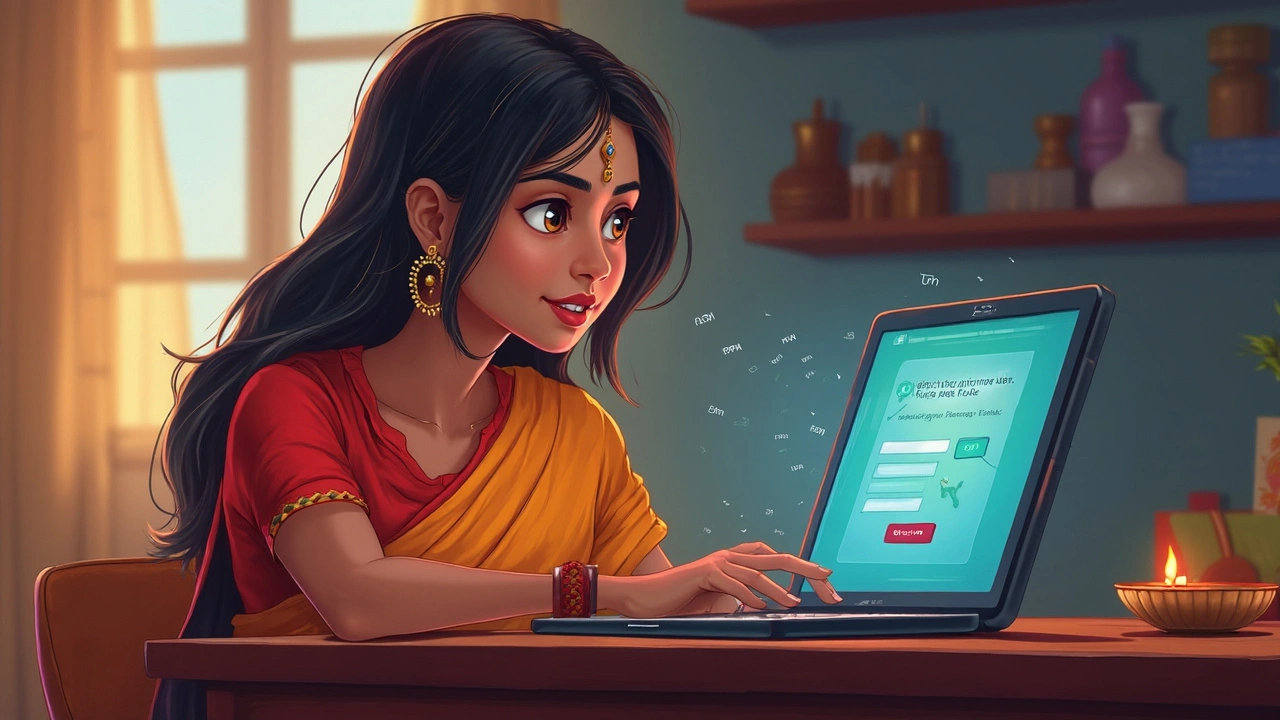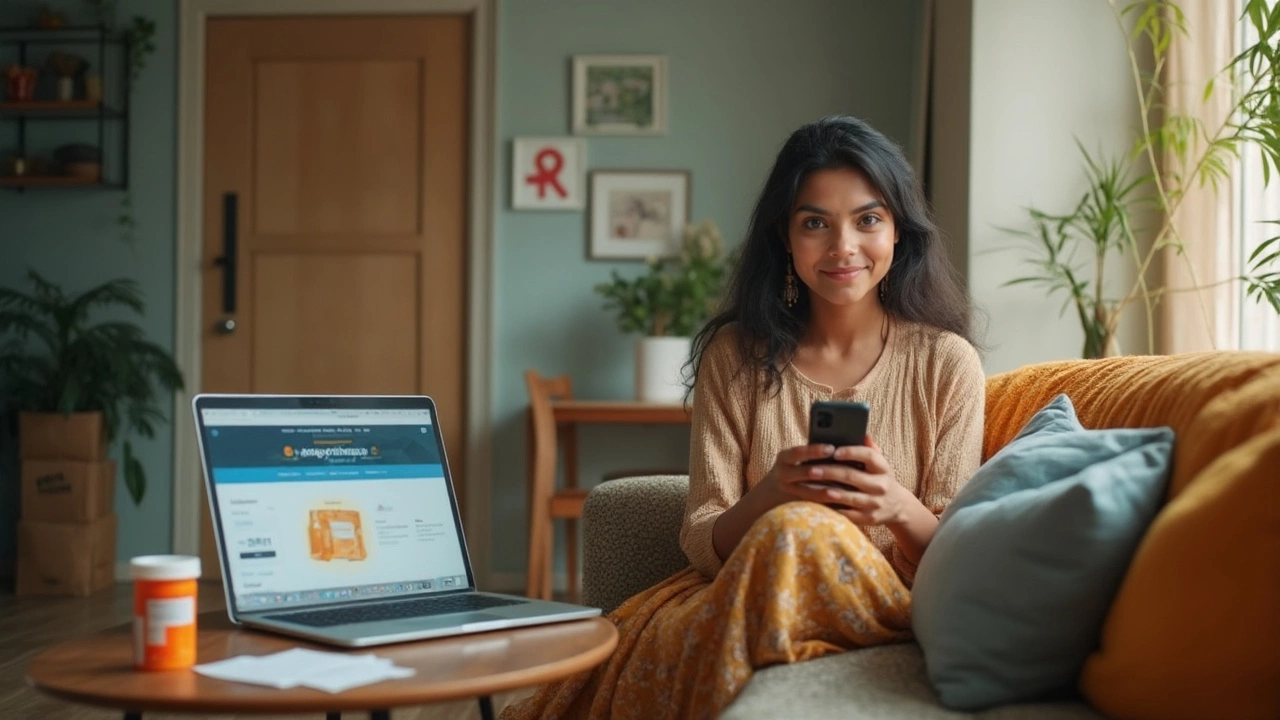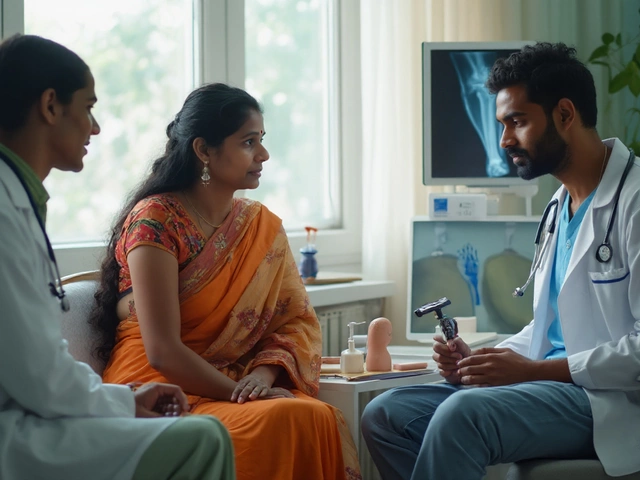Prescription Drugs – What You Need to Know Before You Take Them
Prescription drugs can be lifesavers, but they also carry hidden dangers if you don’t handle them right. In India, the market is huge and regulations vary, so it’s easy to end up with a medicine that isn’t the best fit for you. This guide breaks down the biggest risks, practical safety steps, and how to spot red flags before you swallow a pill.
Common Risks and Side Effects of Popular Prescription Medications
Every drug comes with a side‑effect profile, but some classes bite harder than others. Antibiotics can ruin gut flora, leading to digestive upset or even resistant infections. Painkillers, especially opioids, risk dependence and severe constipation. Blood‑pressure meds might cause dizziness or low blood sugar. Knowing which symptoms are normal (like mild nausea) versus warning signs (like chest pain) saves trips to the emergency room.
Indian brands sometimes use different fillers or bio‑equivalent formulas that can affect how your body reacts. For instance, a generic version of a heart drug may have a slightly different absorption rate, causing unexpected spikes or drops in blood pressure. Always ask your pharmacist if the brand you receive matches the one your doctor prescribed.
Practical Steps to Keep Prescription Drugs Safe
First, keep a written record of every prescription, including dose, timing, and why you’re taking it. Apps help, but a simple notebook works too. Second, double‑check the label before you start – look for expiry dates, batch numbers, and dosage instructions. If anything looks off, call the pharmacy right away.
Third, never mix meds without a professional’s OK. Even over‑the‑counter supplements can interfere; for example, St. John’s wort reduces the effectiveness of many antidepressants. Fourth, store drugs properly: most need a cool, dry place, but some, like insulin, must stay refrigerated. Bad storage can turn a safe drug into a poison.
Finally, report adverse reactions. India’s pharmacovigilance program lets you email or call a toll‑free number to log side effects. Your report helps regulators catch dangerous batches early, protecting others.
Remember, the best defense is awareness. Ask your doctor why a drug is necessary, how long you’ll need it, and what alternatives exist. If a medication feels unnecessary or you notice new symptoms, speak up immediately. Your health isn’t a guessing game – it’s a partnership between you, your doctor, and your pharmacist.
By staying informed and following these simple habits, you can enjoy the benefits of prescription drugs while keeping risks to a minimum. Got a question about a specific medicine? Drop a comment below, and let’s figure it out together.

How to Choose an Online Pharmacy: A Practical Guide
Finding a reliable online pharmacy isn’t just about getting your pills delivered to your door. It's about making sure your medication is real, your money is safe, and your private info stays private. This article breaks down what you need to look for to avoid scams, how to spot legit pharmacies, and how to keep your health (and wallet) protected. You'll get clear steps and smart tricks to make your search way easier and safer. If you plan to buy medicine online, you probably have questions—this guide gives you direct answers.

Why Is Metformin So Bad to Take? The Real Story on the Most Common Diabetes Pill
Metformin has a reputation for being both helpful and hard to tolerate. This article breaks down why so many people complain about metformin, from the annoying side effects to long-term risks. You'll get straightforward answers, real-life tips, and a clearer idea of what you can expect if your doctor suggests it. We’ll also talk about who really shouldn’t take it and when to push for an alternative. Just the facts, not the fluff.

Can Amazon Pharmacy Fill Controlled Substances? What You Need to Know
Wondering if Amazon Pharmacy fills controlled substances like Adderall or opioid pain meds? This article digs into Amazon Pharmacy’s policies on these tightly regulated medications, breaking down what you can and can’t get delivered to your doorstep. You’ll get clear info on how the rules work, tips to stay safe, and what to do if your prescription falls into the controlled category. Learn about alternative ways to get your meds if Amazon doesn’t supply them, and how the laws shape what’s possible with online pharmacies in the US. All the answers, no confusing jargon.

Order Prescription Drugs Online: A Modern Convenience
Ordering prescription drugs online has become a convenient option for many, transforming how people access medications. This article delves into the rising trend of online pharmacies, exploring both the benefits and potential risks. Learn about the legality, how to safely choose a reliable service, and helpful tips to ensure a positive experience. Discover what to watch out for when navigating the digital pharmacy landscape.

Is ADHD Really a Mental Illness?
Apr, 11 2025



